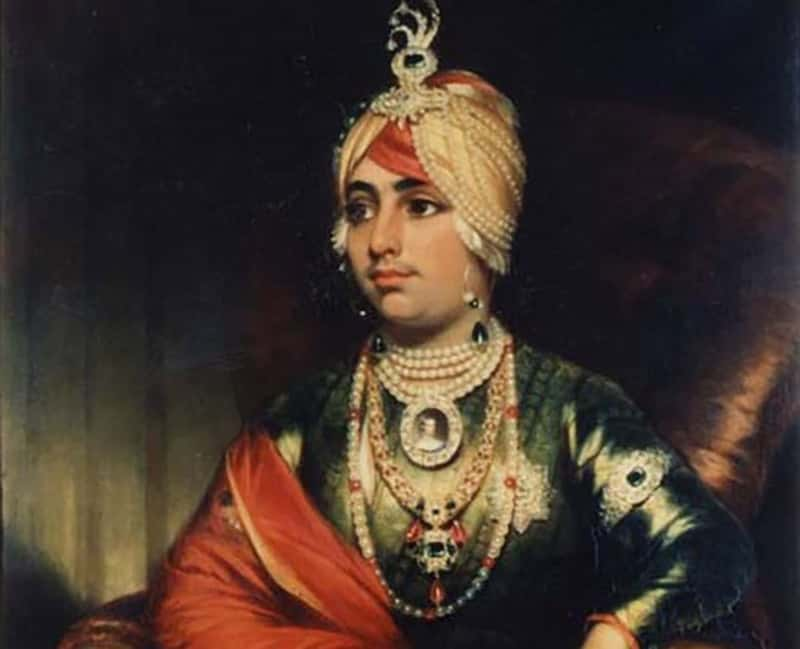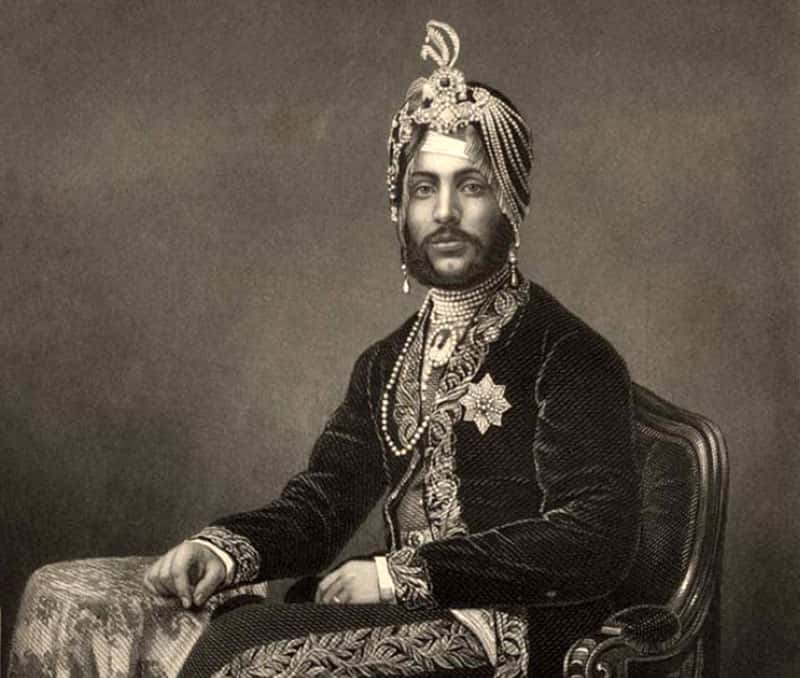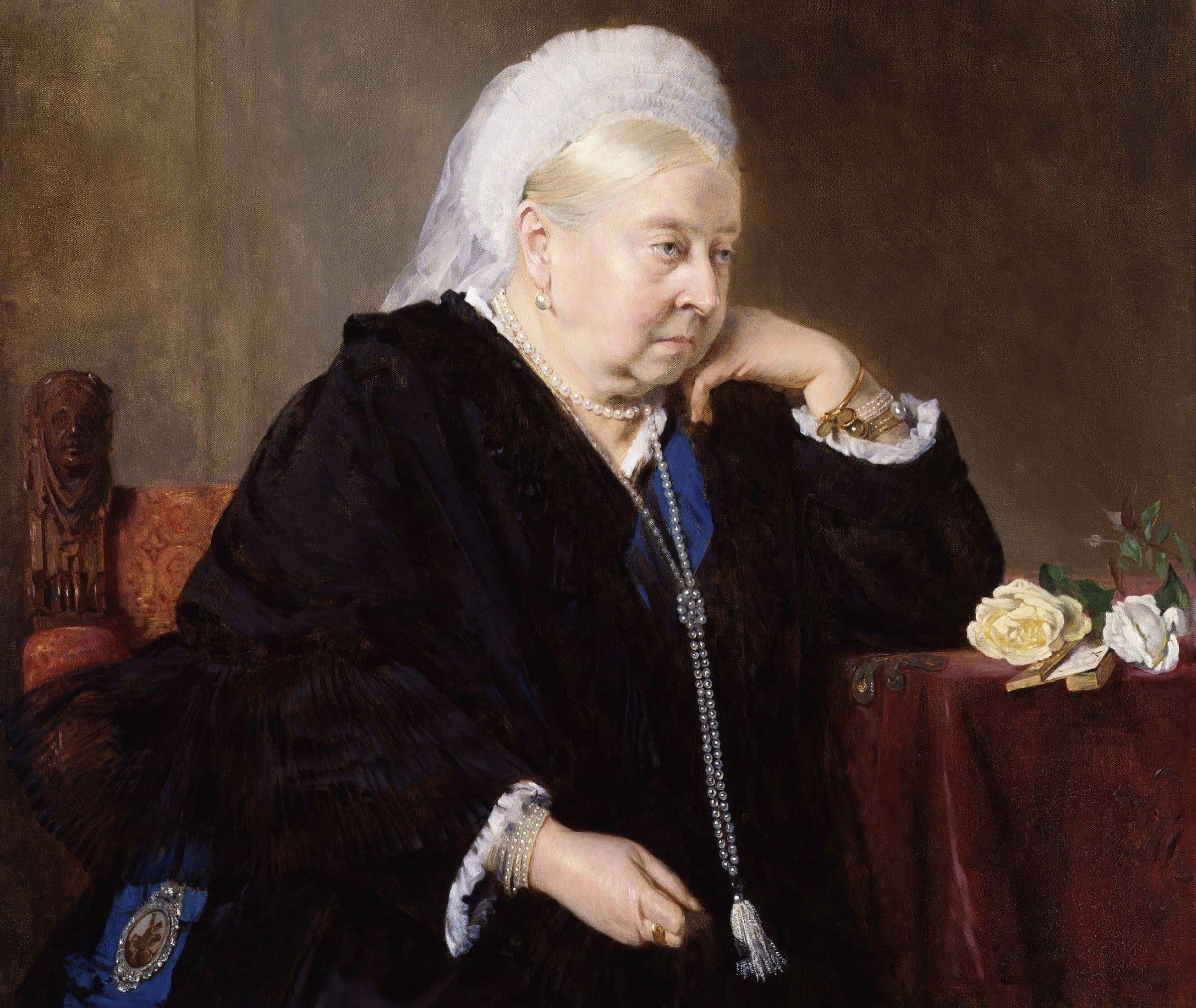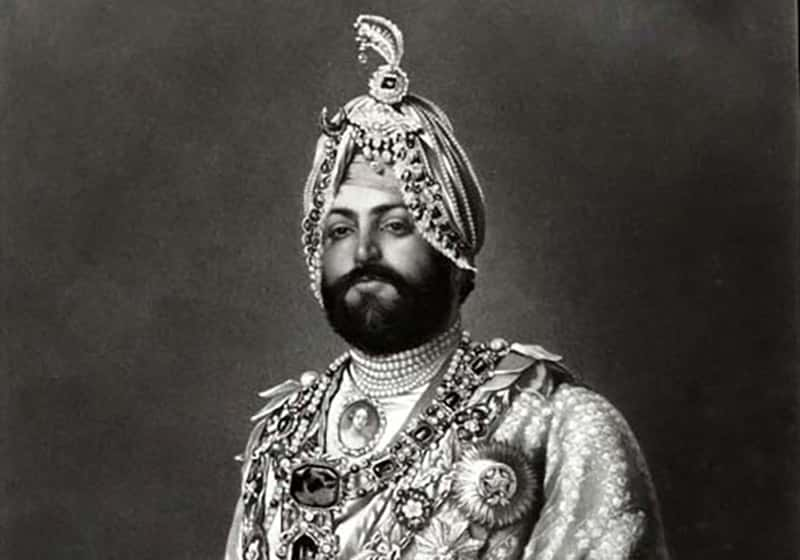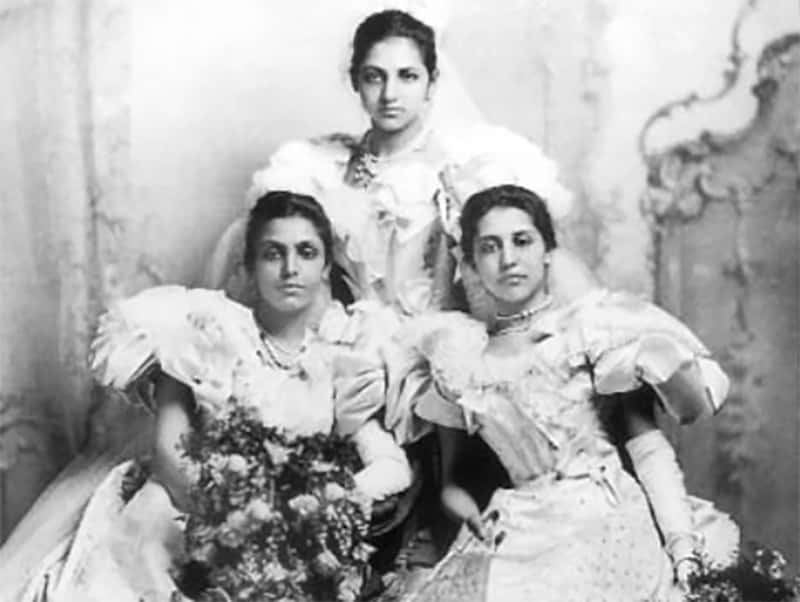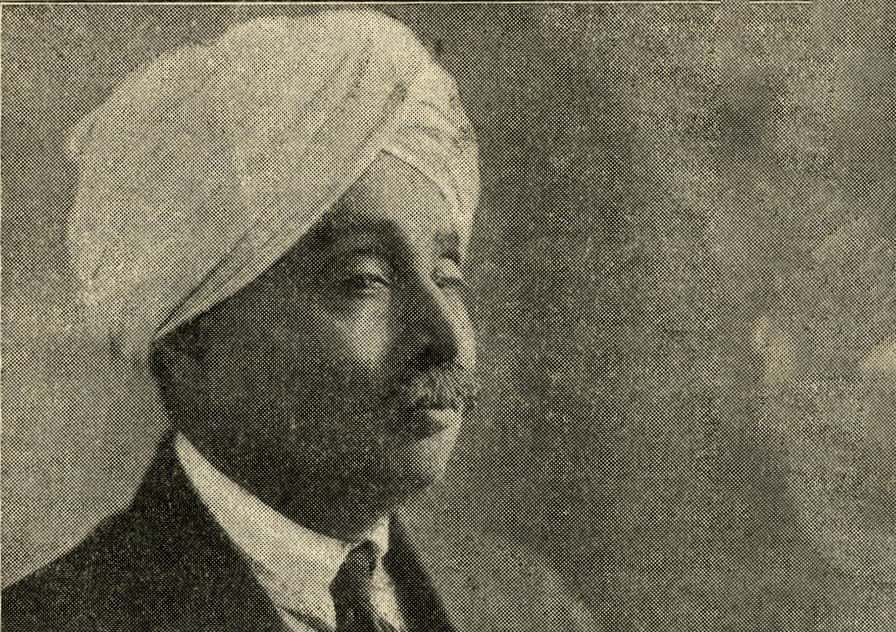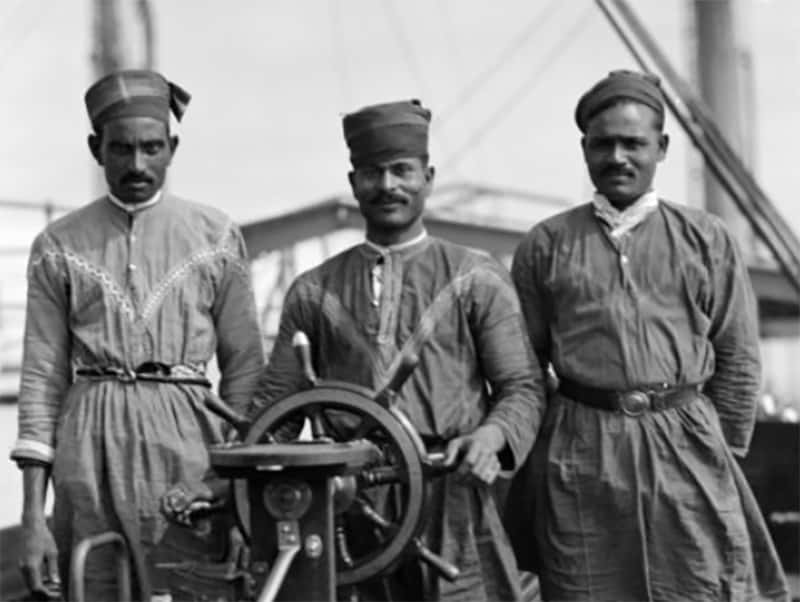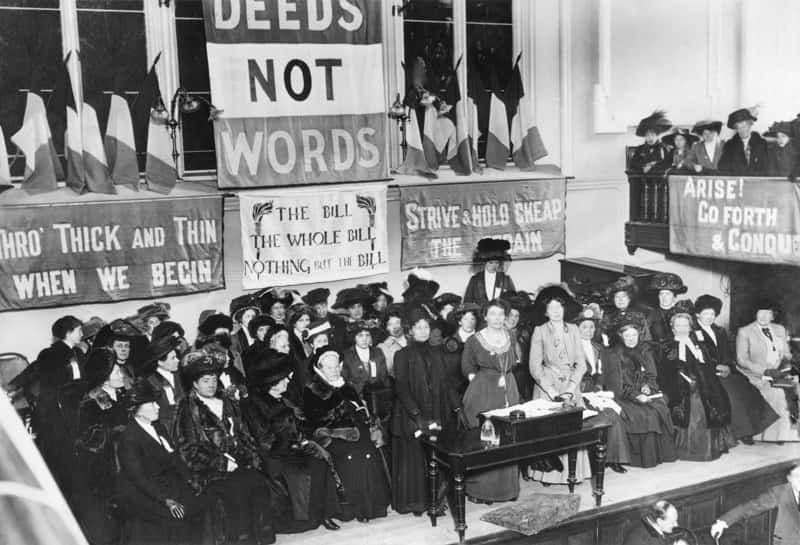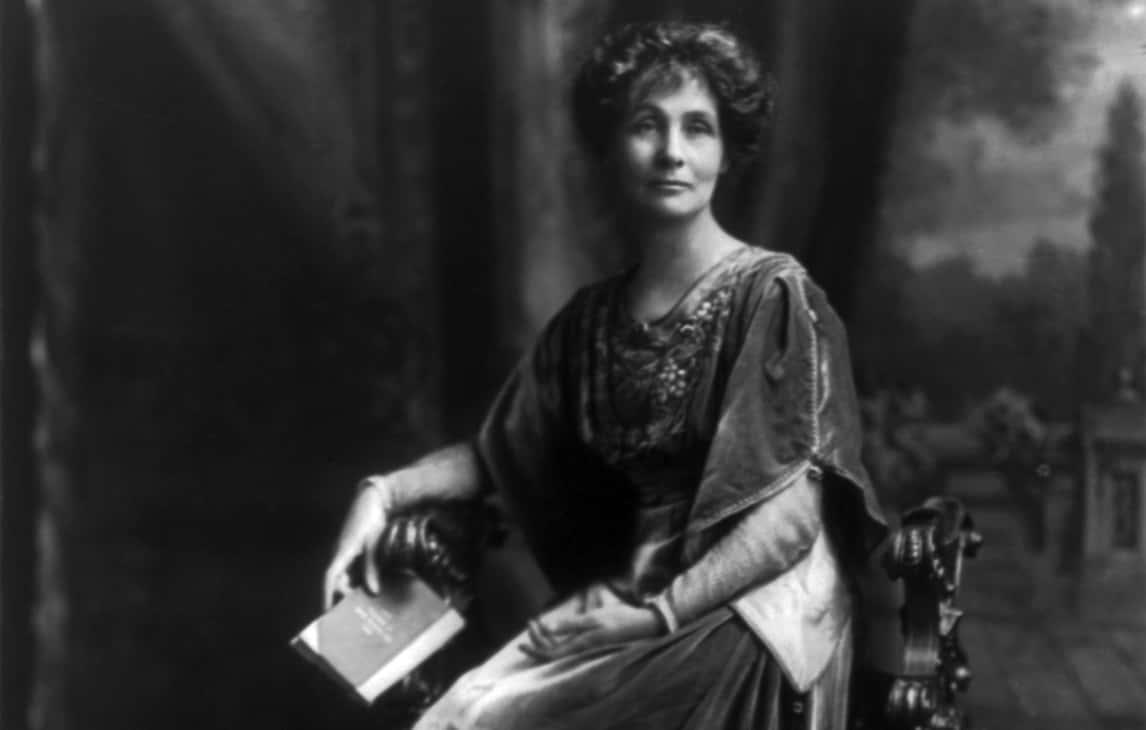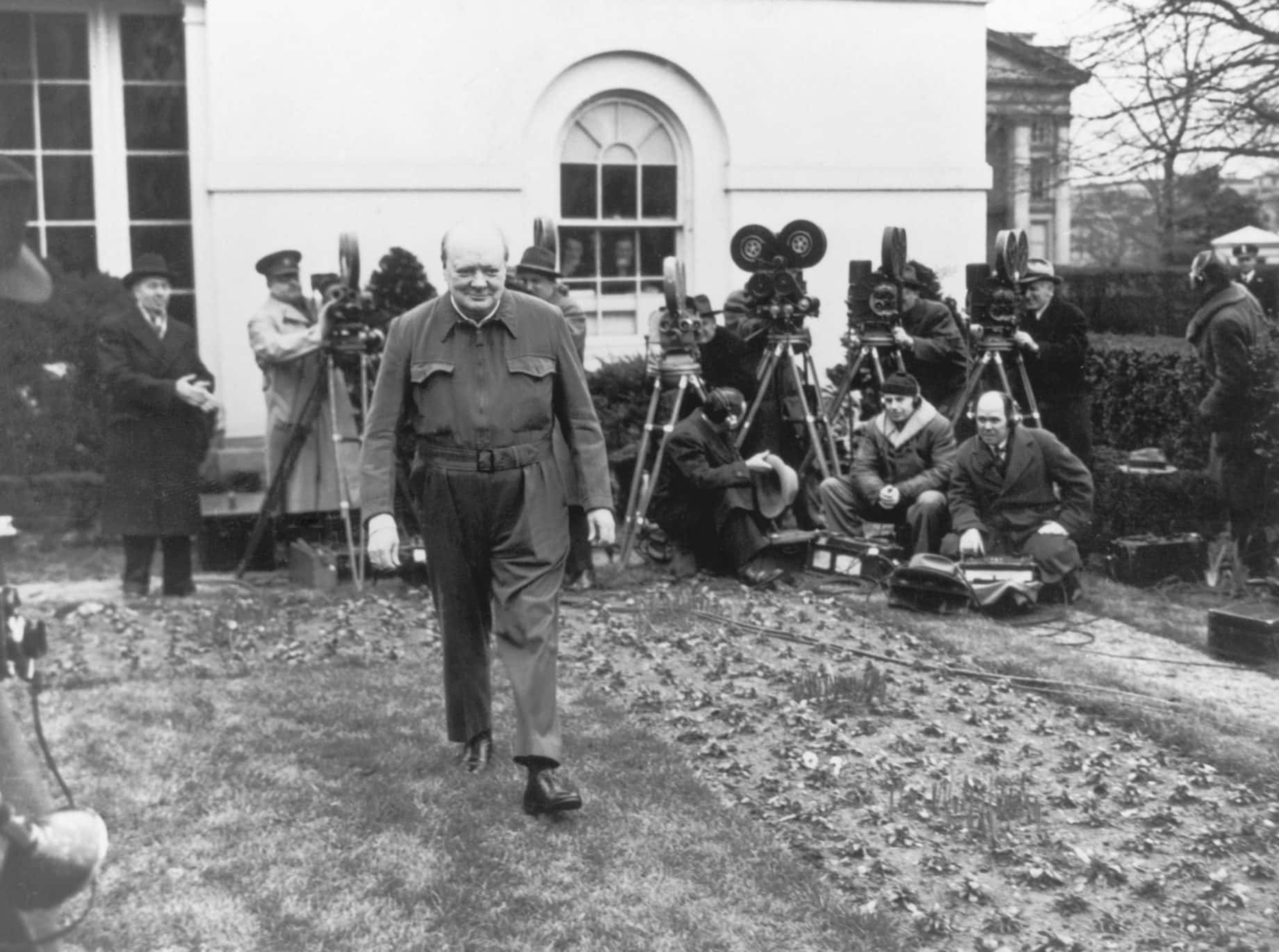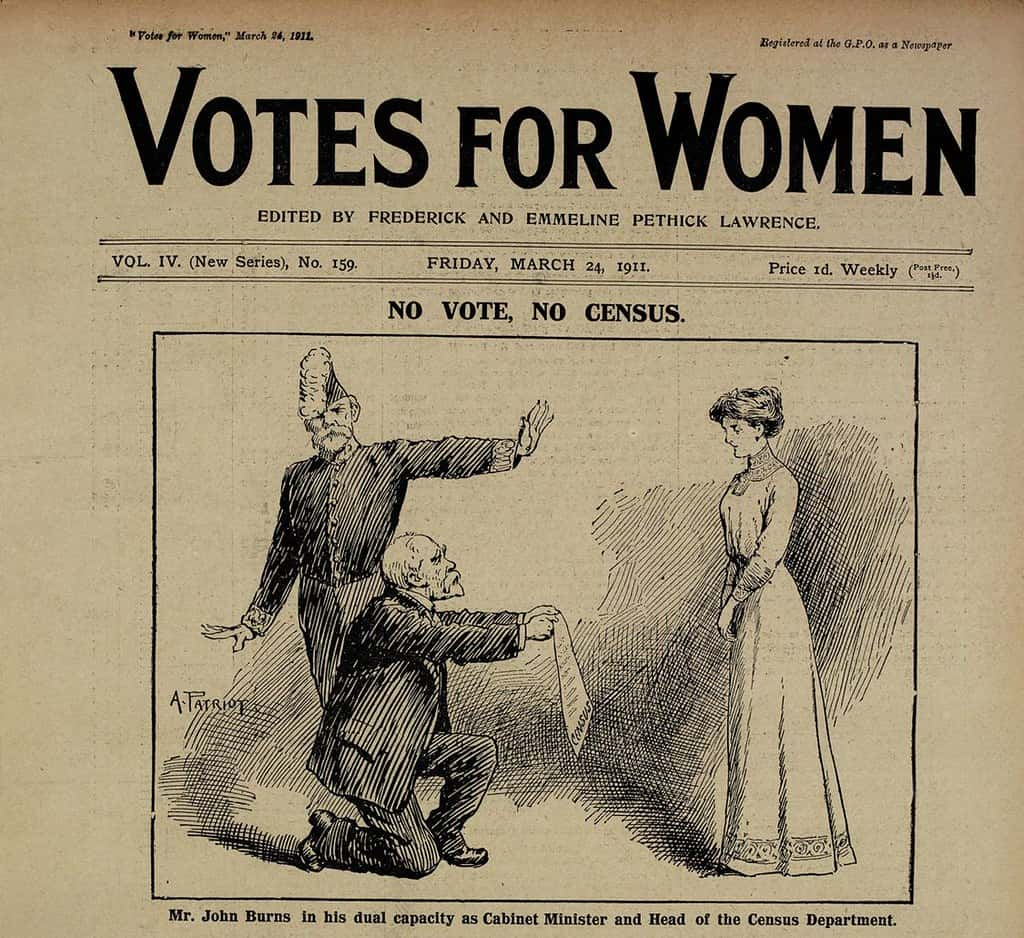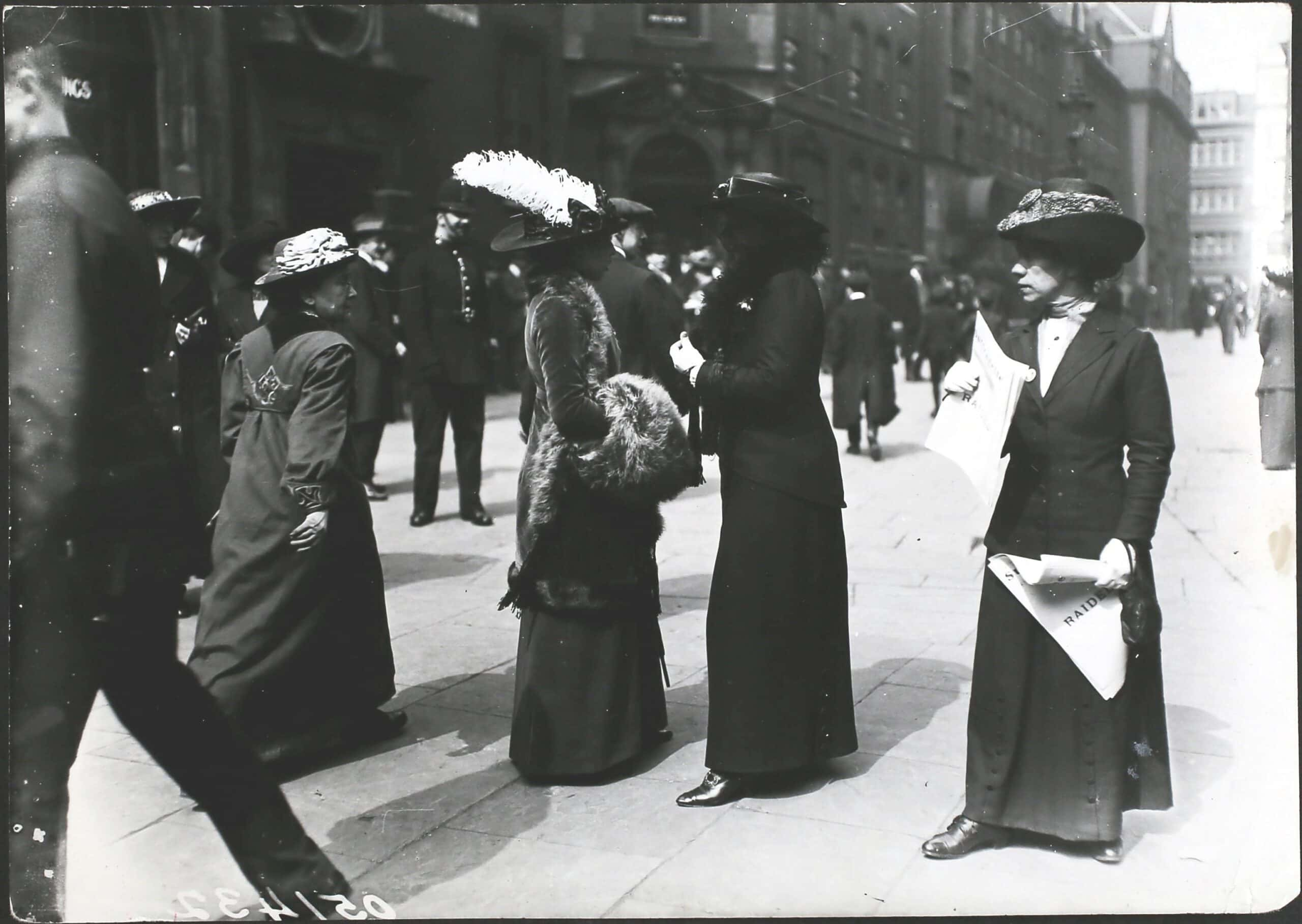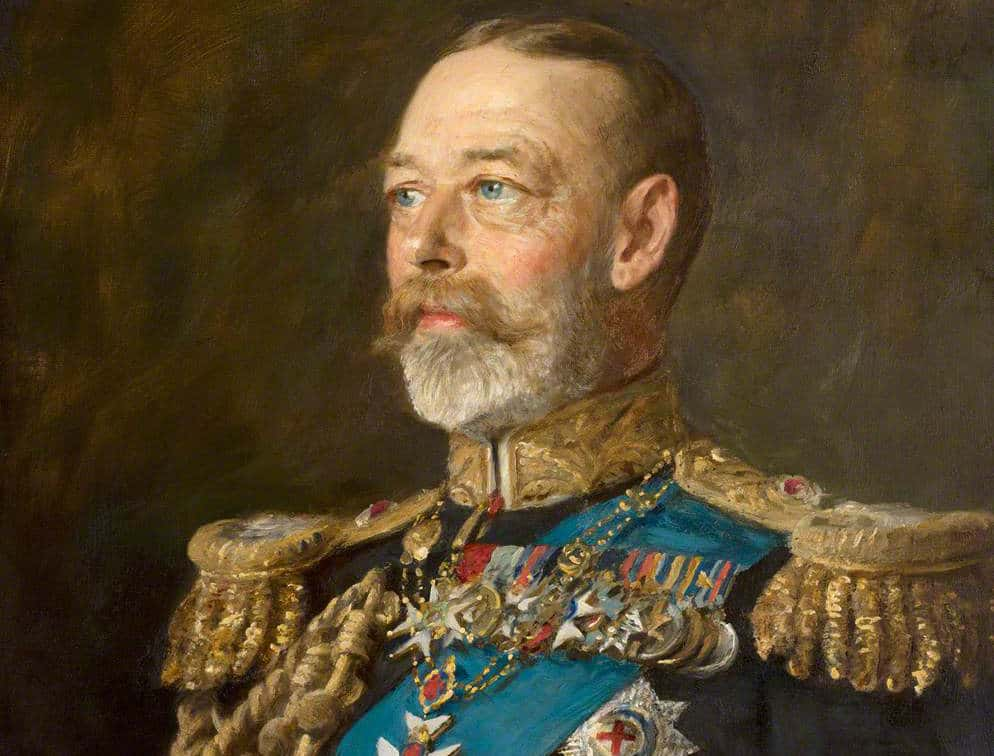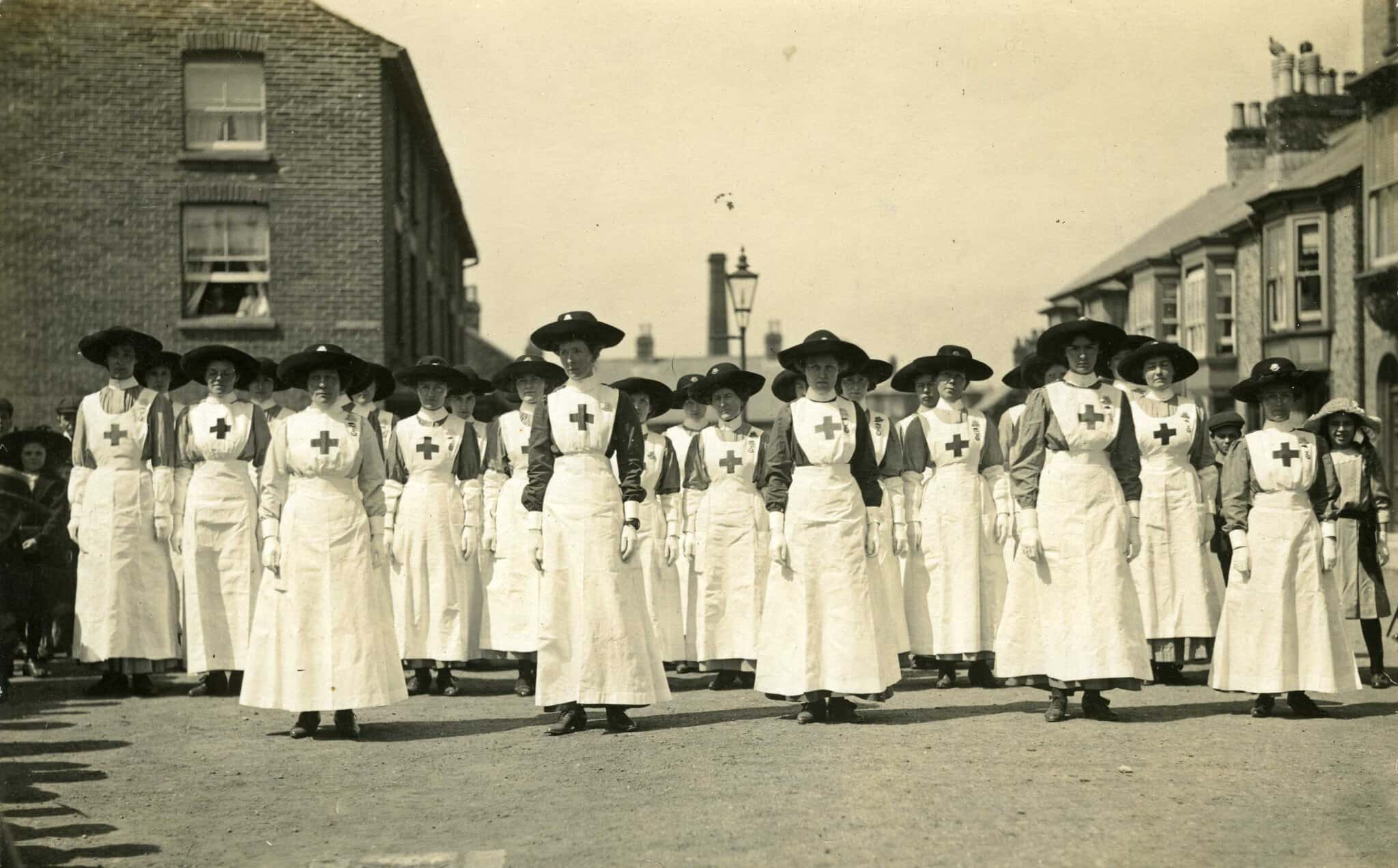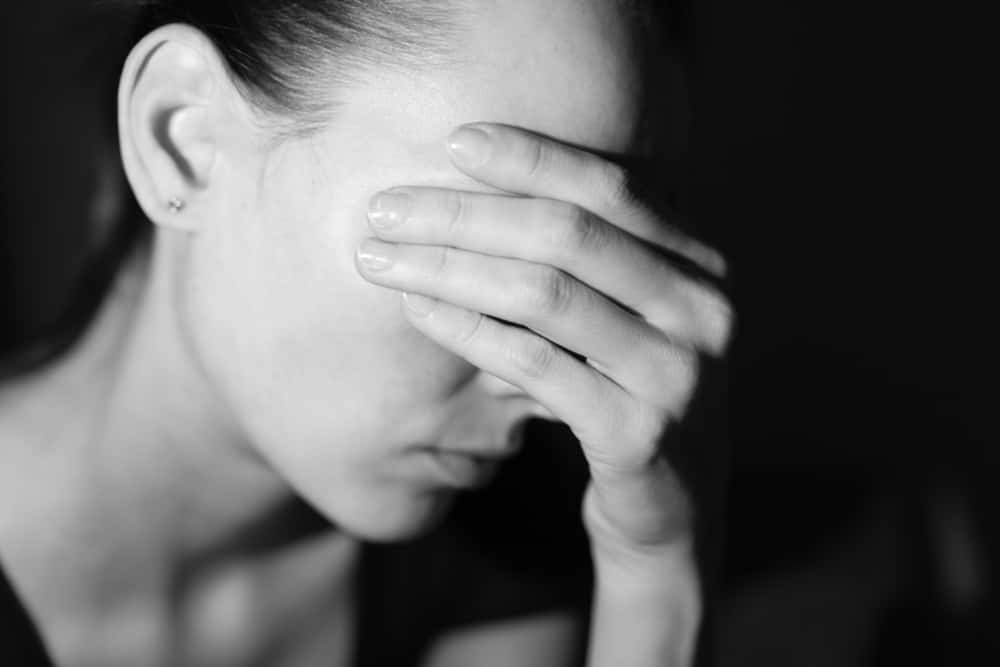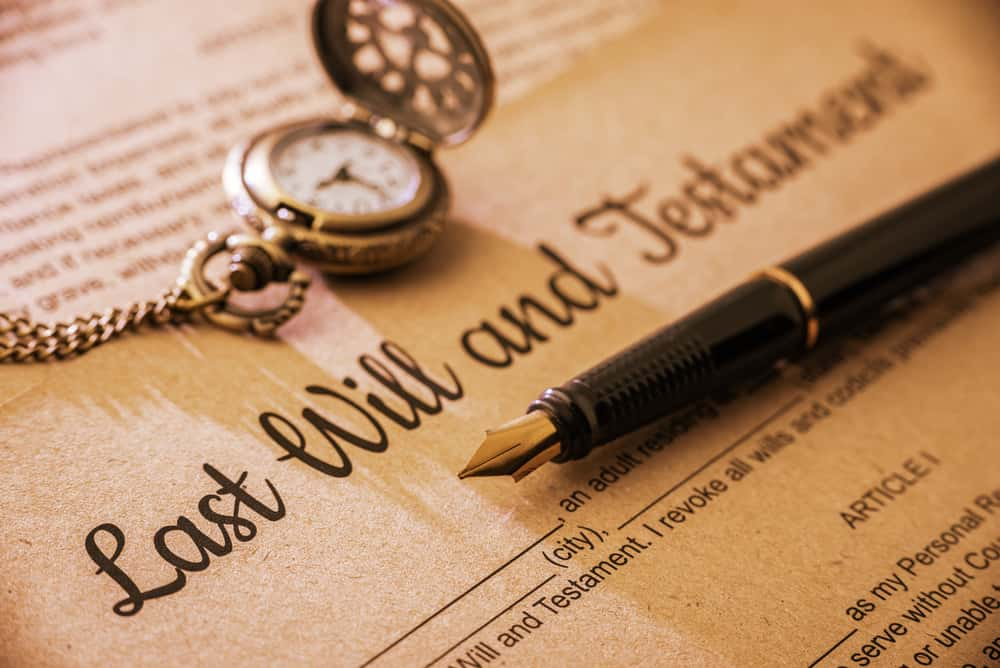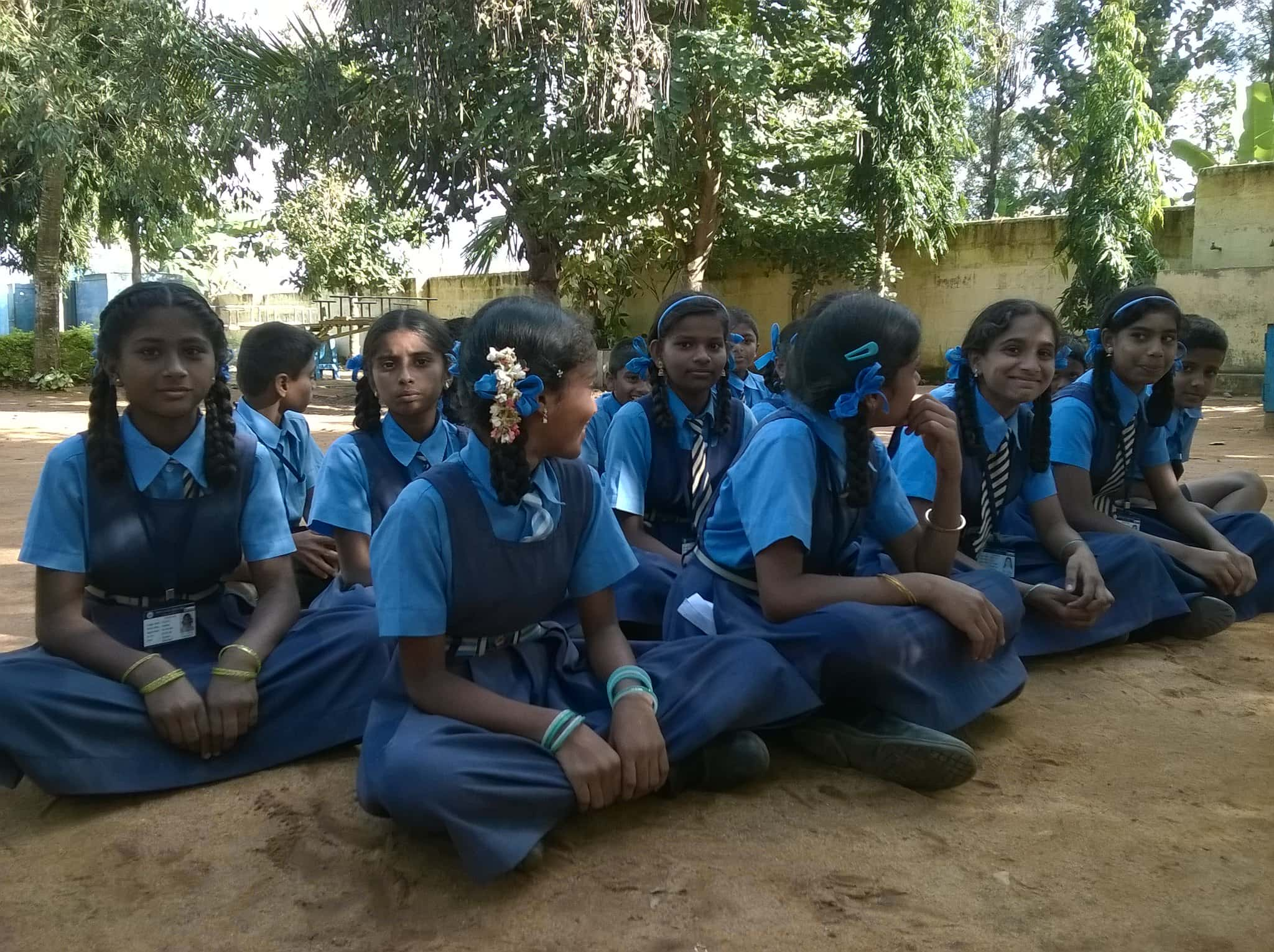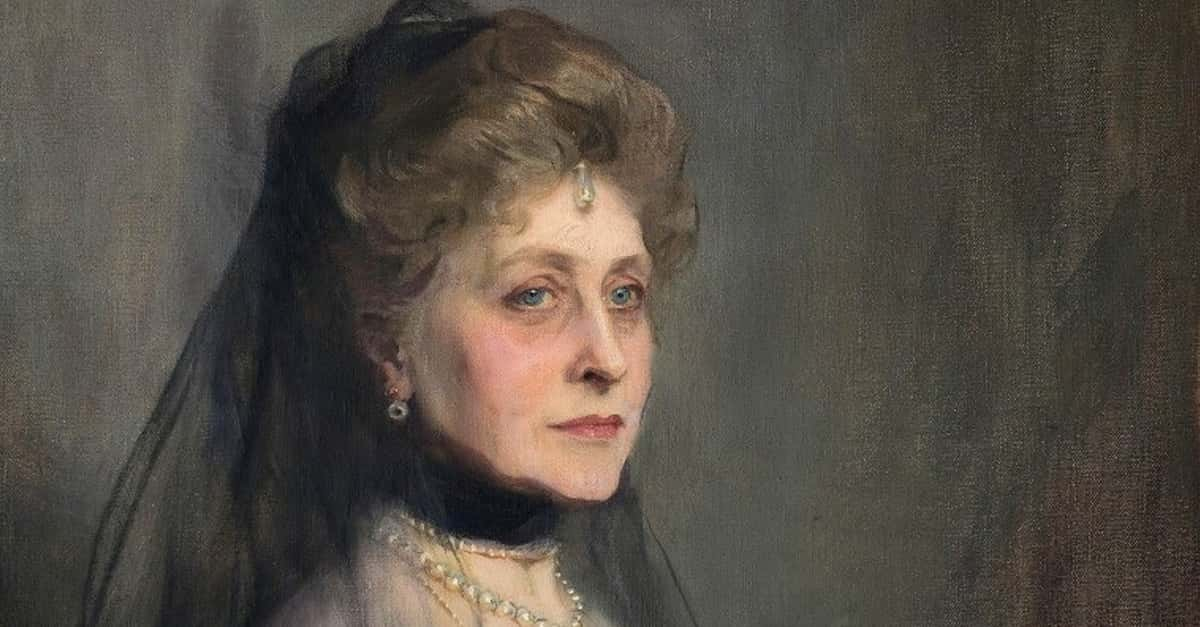Even though Princess Sophia Duleep Singh was the daughter of exiled Punjabi royalty and the goddaughter of Queen Victoria, she couldn't have been further from the hoity toity world of high society. Instead, Sophia turned her energy to activism, fighting for women’s rights and equality in both England and India. Get to know this suffragette rockstar: Here is the incredible story of Princess Sophia.
1. She Had Unique Roots
Sophia may have been born and raised among Britain's upper crust, but she wasn't your usual English aristocrat. Her father was Indian while her mother was German and Ethiopian. Though Sophia's parents certainly passed down the beautiful gene in spades, her mixed race background also came with baggage like intolerance because, y'know, the Victorian era.
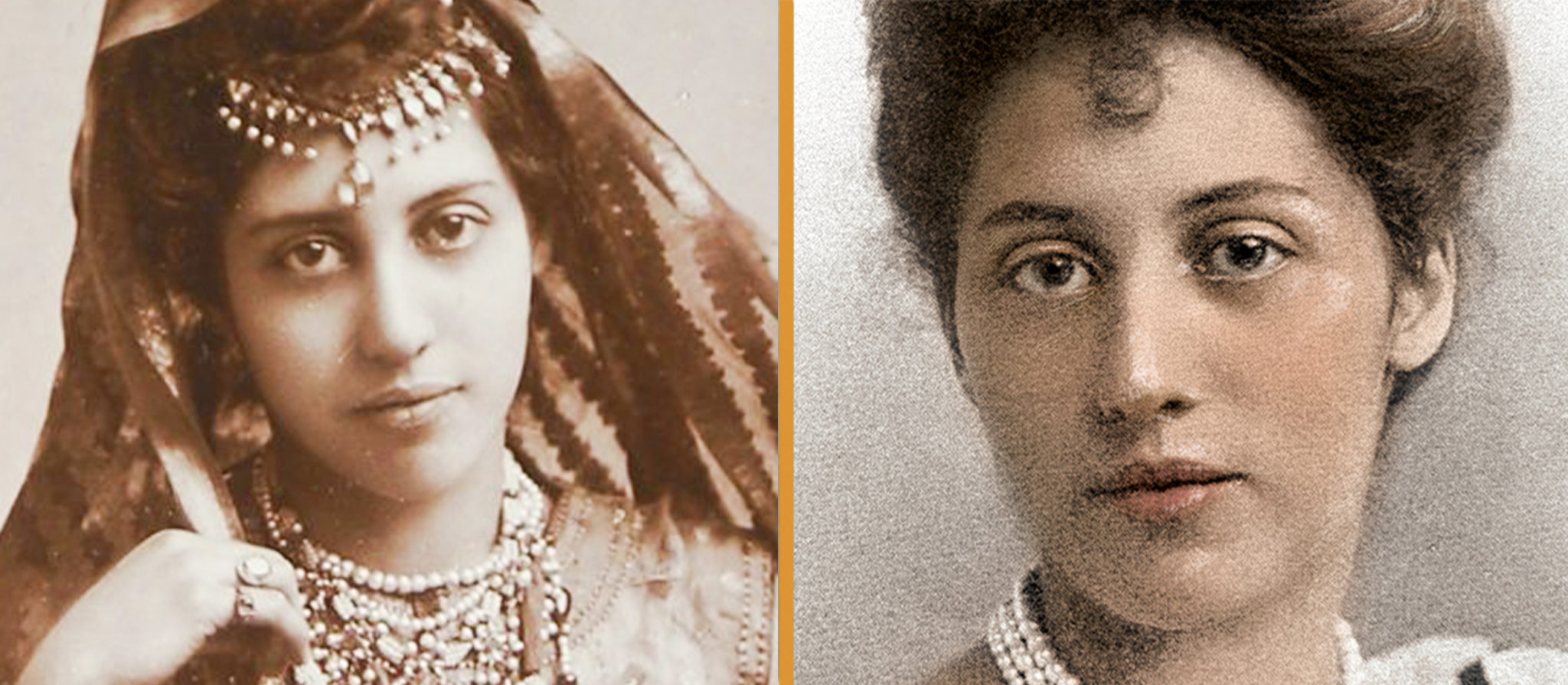
2. Her Family Was Scandalous
From the get go, Singh's family was mired in controversy. Her father was the last Maharajah of the Sikh Empire, and he dramatically lost his throne when the East India Company gave him the boot. They forced him to uproot his life and move to England when he was just 15. But once the ex-Maharajah arrived, he grew so close to Queen Victoria that she became baby Sophia's godmother.
3. She Grew Up With Privilege
Singh spent her early years in living in the lush period drama of my dreams. She roamed through Elveden Hall, which her father transformed into the type of extravagant Indian palace he remembered from his childhood. A variety of dukes, earls and even the Prince of Wales frequently visited Sophia's home. Exotic animals such as baboons, leopards wandered the grounds, and they had an aviary with birds such as Indian hawks and jewelled parrots. Little could Sophia imagine that all of that would soon come to an end.
 Sophia: Suffragette Princess, BBC
Sophia: Suffragette Princess, BBC
4. Her Happy Life Ended
In England, Singh's family got along well with Queen Victoria, but over time, Singh's father began to grow frustrated with the monarch. If Victoria was his friend, why wasn't she trying to restore his kingdom to him? It's not as though the Singhs were bad rulers. Heck, Sophia's grandfather, nicknamed the Lion of Punjab, peacefully ruled the territory for nearly 40 years! As the years passed, these questions tormented Singh's father—and soon, he lashed out.
5. She Had Her First Arrest
Determined to reclaim his birthright, Singh’s father ignored the command of the British government and ripped Singh, her mother, and her siblings away from their pampered British lives to set sail for India. However, it seems like Papa Singh wasn't the greatest at escape plans. The family only made it as far as Aden port before their escape was cut short and the British authorities took them into custody. This was little Sophia's first encounter with the law, but trust me, it wouldn’t be her last.
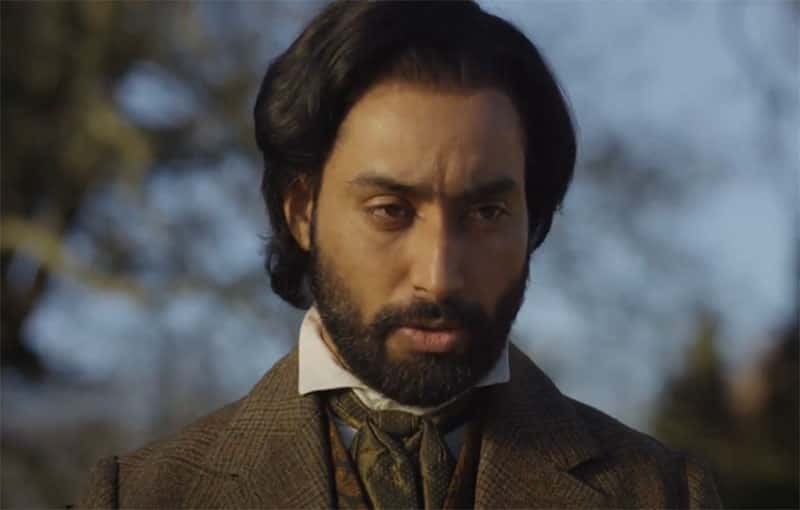 The Black Prince (2017), Brillstein Entertainment Partners
The Black Prince (2017), Brillstein Entertainment Partners
6. Her Life Was Drastically Different
The life that Singh returned to after her family’s detainment was completely different than the one she left. Her father refused to return to England and publicly gave up any responsibility for Singh or her siblings, abandoning little Sophia when she was just 10 years old. Singh's mother took the divorce very hard and began to drink heavily. Thankfully, Queen Victoria stepped in and gave Singh and her family an allowance and a place to live, but the misery wasn’t over for our girl just yet.
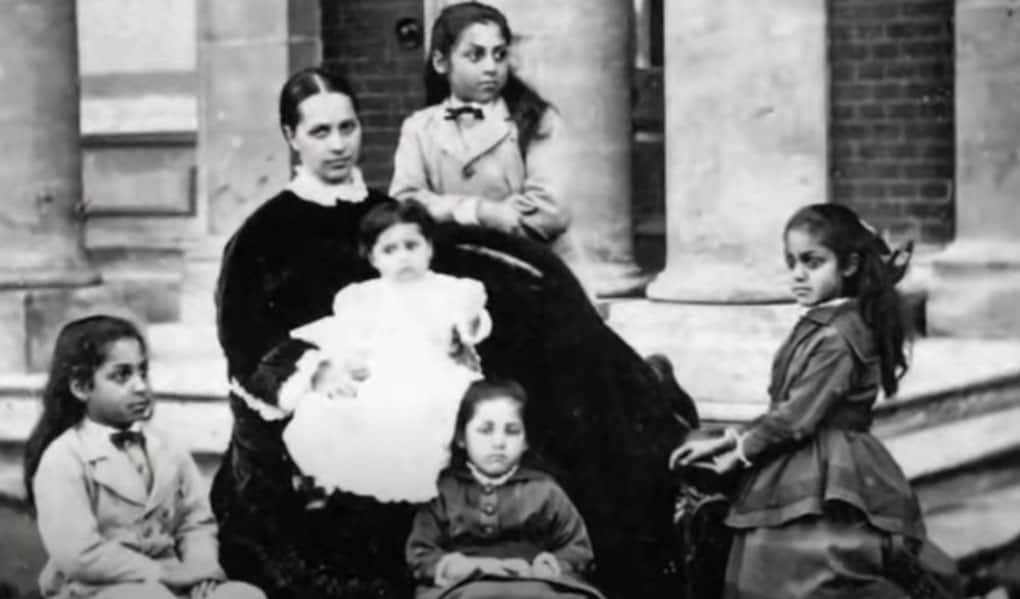 Sophia: Suffragette Princess, BBC
Sophia: Suffragette Princess, BBC
7. She Had A Close Call
A few months after her father abandoned her and her mother took to the bottle, Sophia became seriously ill with typhoid fever. Queen Victoria immediately arranged for her own personal doctor to care for her, but by the time he arrived in the morning, Singh’s fever had already broken. She survived—but not everyone was so lucky.
8. She Suffered Another Tragedy
On the same morning that Sophia realized she would live, she learned that her own mother hadn't been so lucky. She passed on from diabetes-related renal failure, and here's the kicker: Her demise could have been avoided. The fatal issue was exacerbated by Mama Singh's heavy drinking, which was in turn brought on by Papa Singh's abandonment. Even Queen Victoria herself laid the blame at Sophia's father's feet.
9. Her Family Life Was Messy
Oh, if you thought abandoning his family was the worst thing that Papa Singh did, I have news for you. He left them for his mistress, a chambermaid named Ada. Evidently, the ex-Maharajah didn't let any guilt about, I don't know, abandoning his entire family, get in the way of enjoying his new relationship. Sophia's father didn't even attend her mother's funeral, get this, because he was busy looking after his new girlfriend—who was already six months pregnant. Classy!
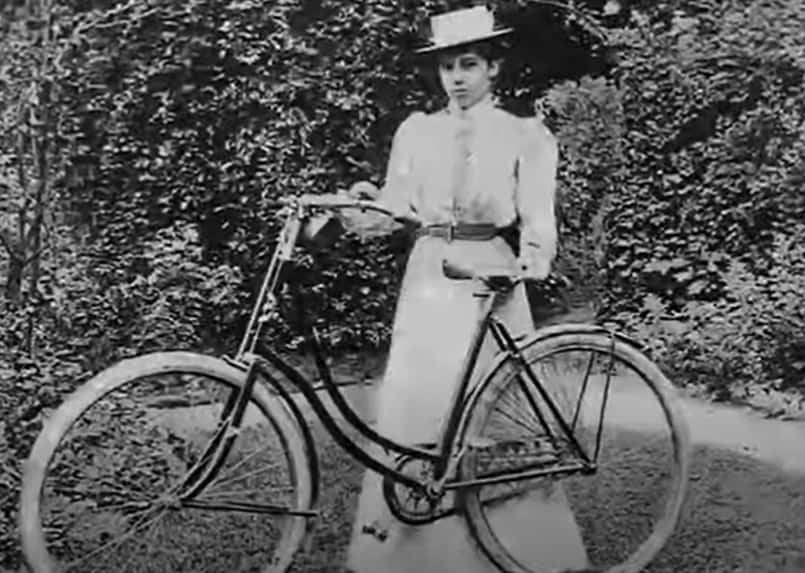 Sophia: Suffragette Princess, BBC
Sophia: Suffragette Princess, BBC
10. She Had Some Royal Assistance
Now essentially an orphan and penniless, Singh’s prospects seemed pretty bleak. Luckily, her godmother Queen Victoria had a heart and took pity on her goddaughter and Singh's five other siblings. The Queen sent Sophia's older brothers to school and placed Singh, her sisters and youngest brother under the guardianship of Arthur Oliphant, an old family friend. Oliphant and his wife acted as foster parents to the kids and Singh’s life stabilized for a time, but more tragedy was just around the corner.
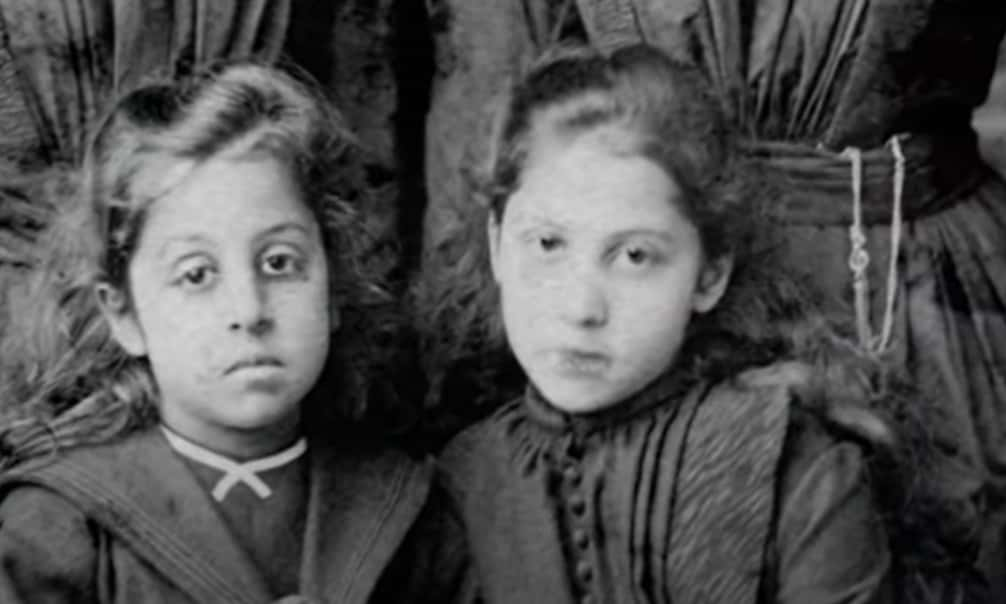 Sophia: Suffragette Princess, BBC
Sophia: Suffragette Princess, BBC
11. Tragedy Hit Her Again
As it turned out, losing her mother was just the tip of the iceberg of Singh’s suffering. When she was 17, Singh lost her beloved younger brother Albert Edward to pneumonia. Then, just six months later, her father died penniless in a derelict French apartment. Even though Papa Singh could have treated his daughter better, losing two members of her family in such a short time frame had a huge impact on Sophia. Life really needs to give this girl a break, you guys.
 Sophia: Suffragette Princess, BBC
Sophia: Suffragette Princess, BBC
12. She Was an Ugly Duckling
Though both Sophia's sisters were considered beauties, Sophia went through an intense awkward phase and served major shrinking violet vibes. She had long unruly curls, a curvier figure, and a slight overbite. She was also incredibly timid. Sophia either barely spoke or spoke in such a low voice that people had to be very close to even hear her. Young Sophia was a far cry from the fearless suffragette she would become.
 Sophia: Suffragette Princess, BBC
Sophia: Suffragette Princess, BBC
13. She Saw Things Differently
With a family history like hers, Singh and her sisters had every reason to be angry with the British—after all, colonial rule literally stole the Singh family's homeland. Sophia's sister Bamba deeply disliked white people for their treatment of her family and took up her father’s fight for Punjab liberation. Though Sophia was more accepting of England, she had lots of fiery ideas for how the country could improve (Spoiler: Not treating women like objects was a big one).
But before all that hair-raising could start, Sophia went through an even more rebellious phase.
14. She Was Treated Like a Princess
When she came of age, Sophia shocked the aristocracy by transforming from a nearly-silent ugly duckling to a full-on Victorian It-Girl. She moved into the luxurious apartments at Faraday House and used her newfound freedom to attend as many parties as possible. Her outrageous behavior and glamorous fashion sense (have you ever seen Pinterest boards where brides obsess over hairdos involving pearls? You have Sophia to thank) frequently landed her in magazines and newspapers.
 Sophia: Suffragette Princess, BBC
Sophia: Suffragette Princess, BBC
15. She Took Up An Unusual Hobby
In 1895, just as bicycles were becoming fashionable among European royalty, Singh purchased a Columbia bicycle and became one of the first women to ride her bike in public. Many people who objected to female cyclists, but Singh didn’t care. If this tiny transgression scandalized the British, they had another thing coming. Sophia had now gone through her Party Girl phase. Her Bad Girl phase was right around the corner.
16. She Snuck Into India
In 1901, the world changed with the death of Queen Victoria. The loss impacted everyone, but as the Queen's god-daughter, it hit Sophia especially hard. Perhaps looking for an escape from gloomy England, Sophia and her firebrand sister Bamba decided to go on a forbidden escape trip. The girls defied the orders of the Secretary of State and snuck into India to see King Edward VII’s coronation as Emperor of India. Used to the celebrity they enjoyed in England, they were in for a rude awakening.
17. She Had a Reality Check
What Singh saw in India completely shocked her. Life was harsh for brown-skinned people, and Singh blamed their suffering on European rule. In England, she and her sisters enjoyed a privileged first-class life, but in India, it was completely the opposite, and neither her princess status nor her relationship to Queen Victoria exempt her from discrimination.
 Sophia: Suffragette Princess, BBC
Sophia: Suffragette Princess, BBC
18. She Felt Unwelcome in Her Homeland
While in India, members of British Indian society largely ignored and disregarded Singh, and people either teased her or berated her for wearing customary Indian garb at social gatherings. Singh had never experienced this kind of treatment before, and despite her lineage, she felt unwelcome and every bit the outsider in her homeland. This experience would impact Singh's later suffragette activities in a major way.
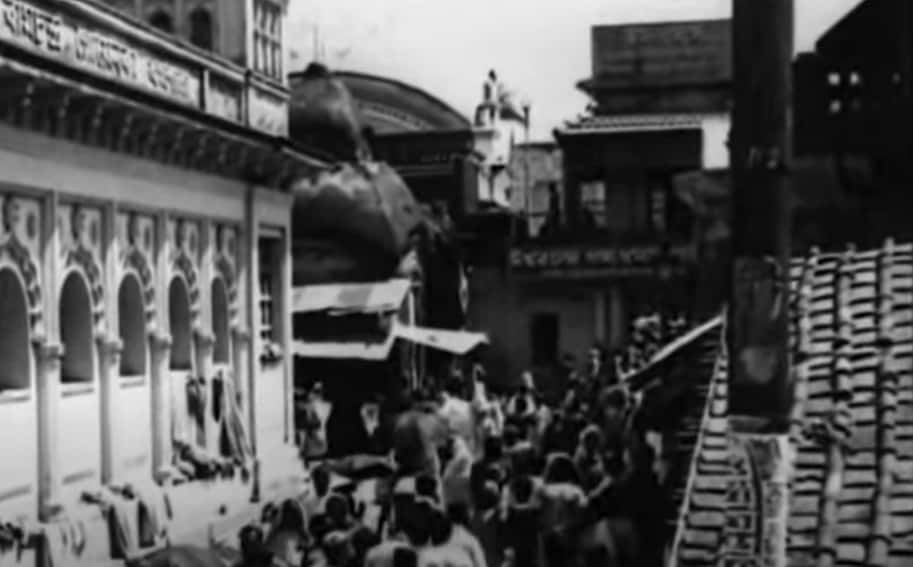 Sophia: Suffragette Princess, BBC
Sophia: Suffragette Princess, BBC
19. She Was Transformed
A few years after her forbidden first trip to India, Singh made a second eye-opening trip. This time people recognized her, and she realized how much influence her grandfather still had in her homeland. She also witnessed the suffering of the Indian people under British rule, and the rallying cry "Awaz doh" (‘Give us a voice) of the Indian nationalists. Their words permanently changed the young princess.
20. She Changed Her Views
While in India for the second time, Singh met some key Indian revolutionaries such as Gopal Krishna Gokhale and Lala Lajpat Rai who put her on her radical path. In fact, Singh so admired Rai, that his arrest and deportation for being a political agitator incensed her. She became so furious that by the time she returned to England, Sophia hated the British.
21. She Was Rebellious
Flashback: There's a reason why Sophia and Bamba's first journey to India went so smoothly. Back in 1900, Bamba desperately wanted to move back to her ancestral homeland. There was just one problem with this idea: Singh’s family were seen as traitors in India (they did, after all, live with the colonized country's number one enemy, Queen Vicky). This meant that the Singh sisters had to get creative. They booked a cruise to Japan just to see how close they could get to India while still evading the British Government. Sneaky!
 Sophia: Suffragette Princess, BBC
Sophia: Suffragette Princess, BBC
22. She Fought for Sailors
Upon returning home from India, Singh searched for a cause to support. It didn't take long for her to find it. She began to advocate on behalf of the Lascars. These were Indian seamen who worked on the East India Company's ships, where they'd be beaten, humiliated, unpaid, and starved. Knowing of their mistreatment, Sophia used her fame to raise money for the Lascars and set up emergency care for those who returned to Britain. It was her first show of public support for India and its people, but it wasn’t her last.
23. She Found Her Passion
Angered by the inequality and poverty among the Indian people that she witnessed in India (along with her sister getting booted out of medical school for being a woman), Sophia decided to make activism her mission in life. But what cause should a rebel princess support? Sophia didn't have to look long. She realized that, like the Indian nationalists, the suffragettes were demanding a voice. She decided to join their fight.
24. She Made the Right Friends
In 1908, Singh met Una Dugdale, an important leader in the suffragette cause. Their encounter would alter the course of Sophia's life forever. Singh signed up to be a suffragette on the very same day that she met Una, and repeatedly proved that she wasn’t afraid to fight. She befriended Emmeline Pankhurst and happily joined the Women’s Tax Resistance League. It sounds like a bland committee, but nothing could be further from the truth. These ladies were tough as nails.
25. She Had A Bad Reputation
With her new devotion to activism, Princess Sophia immediately became a huge thorn in the side of London's police force. In fact, they kept her under secret surveillance for almost twenty years, spying on her from 1902 to 1920. She also made enemies of major figures like Sir Winston Churchill and King George V. But hey, who doesn't love a good-girl-gone-bad story?
26. She Was Part of the Fight
On November 10, 1910, a date now known as Black Friday, Singh made history when she was one of nine women to lead a march on Parliament to protest their failure to pass a bill that would have secured women the right to vote. The women hoped to meet the Prime Minister, but their peaceful march turned into a riot. Officers shut the demonstration down in utterly brutal fashion. They injured, and even sexually assaulted, 200 women. Two women perished of their injuries.
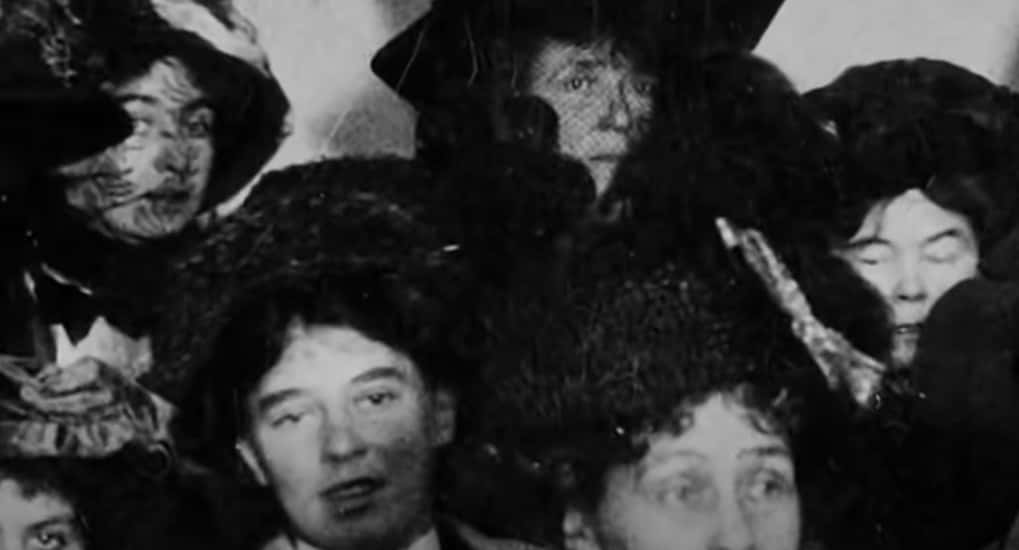
27. She Put Herself At Risk
Singh couldn’t sit idly by and watch, so she bravely stepped into the fray. She threw her body in front of a woman who was being beaten by an officer. Of course, when the officer realized he was now assaulting a freaking princess, he took off. But it was too late: Singh had already committed his badge number to memory. And she wasn't about to let his cruelty go.
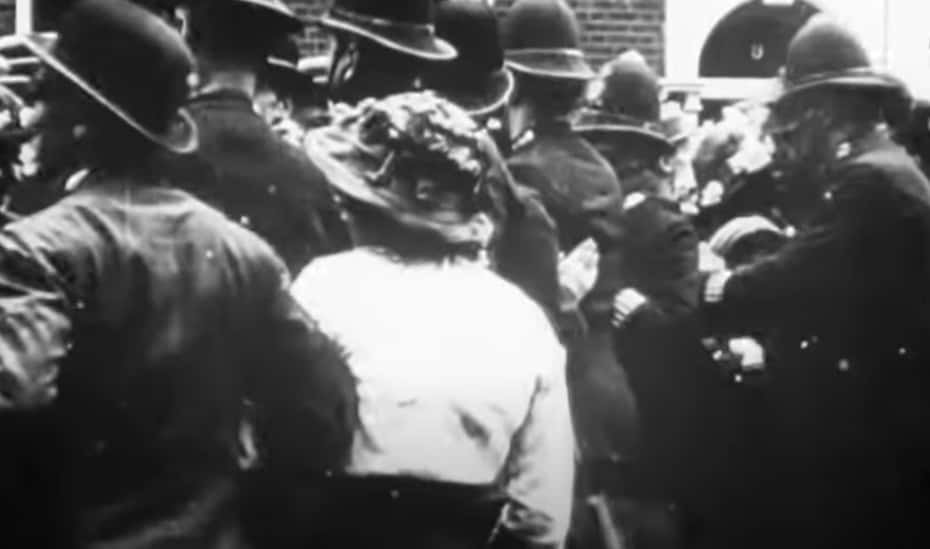 Sophia: Suffragette Princess, BBC
Sophia: Suffragette Princess, BBC
28. She Made Herself a Nuisance
Sophia complained about the brutal way the authorities had harmed the suffragettes. However, the establishment wasn't the most sympathetic. The commissioner stood by the officer, leading Singh to write letter after letter up the chain of command, all the way to Sir Winston Churchill. Though he's known as one of England's most fierce figures, even he was worn down by Sophia's unstoppable demand for justice. How'd our girl break Churchill's spirit? Let's dive in.
29. She Defeated An Icon
In her many fiery notes, Singh demands that the officer be fired for grievously harming an unarmed 5"1 woman. She wrote so often and so ferociously that eventually, Churchill just gave up, issuing a memo that instructed the office to stop replying to Singh. But if Churchill thought that was the end of things, he was very wrong.
Thanks to Sophia's VIP status in England, the government couldn’t just bury her letters. In part due to Sophia's brave protests, "Black Friday" became a watershed moment in the fight for women's right to vote.
30. She Avoided the Count
A few months after the infamous Black Friday march, Singh joined thousands of suffragettes in avoiding the census. They refused to give information or used their forms as places to protest. As Princess Sophia wrote on her 1911 census form, "No vote, no census, as women do not count, they refuse to be counted". Sounds perfectly reasonable to me!
31. She Made a Bold Move
During a protest held outside Prime Minister Asquith’s office, Singh made her boldest move yet. She avoided security by quietly blending in with the crowd, but then, as the Prime Minister entered his car, Singh slammed her body against his windshield. She then pulled out a "Give Women the Vote" poster from her pocket and smacked it in the PM's window.
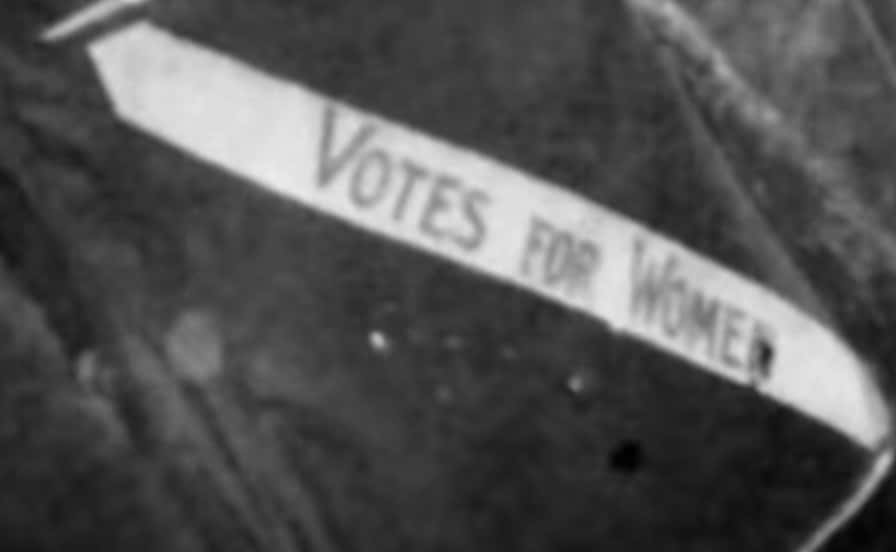 Sophia: Suffragette Princess, BBC
Sophia: Suffragette Princess, BBC
32. She Got a Pass
Locking up a princess (and the Queen’s goddaughter to boot) wasn’t a good look for the government—especially when it coincided with the king’s scheduled speech. Fearing a PR disaster, they let Sophia go, which was a win in the short term and a really dumb move in the long term. Now, the suffragettes knew that Sophia was untouchable. They decided to make the most of their famous new recruit
33. She Did Her Part
Despite the pleadings of the suffragettes, Singh was still on the shyer side, so instead of giving passionate speeches, she sold copies of the Women’s Freedom League and the Suffragette papers in front of her Hampton Court home. This scandalized Sophia's socialite friends and, to be frank, risked the chance that Queen Victoria would kick her off the property, but Sophia took the risk anyway.
 Sophia: Suffragette Princess, BBC
Sophia: Suffragette Princess, BBC
34. She Earned the Ire of a King
Singh’s support of so-called anarchists (let a lady vote!) made her a highly despised woman in England. Whereas King Edward VII had allowed Sophia some leeway, his predecessor had no sympathy for Singh. King George V once became so exasperated with Singh's rabble-rousing that he yelled, "Have we no hold on her?" He didn’t, and neither did anyone else.
35. She Put Her Money Where Her Mouth Was
As their slogan "No Vote, No Tax" suggested, the WTRL believed that if women couldn’t have the vote, then the government shouldn’t require them to pay taxes on their homes and their money. Even when she was taken to court, Singh refused to pay the licence fee on her dogs, her carriage, and her servants. When the time came for Sophia's court date, the rebel princess did not plan to go quietly.
 Sophia: Suffragette Princess, BBC
Sophia: Suffragette Princess, BBC
36. She Stated Her Case
Singh was practically Kardashian famous, so her December 1913 trial for not paying her taxes was headline news. At her trial, she declared, "When the women of England are enfranchised and the State acknowledges me as a citizen I shall, of course, pay my share willingly to its upkeep". Oh, and when the court fined her, Sophia said she wouldn’t pay those either. Iconic.
This time around, Singh wasn't sent to prison, but she didn’t totally escape penalty either...
 Sophia: Suffragette Princess, BBC
Sophia: Suffragette Princess, BBC
37. They Couldn’t Punish Her
This time, the court fined Singh, and confiscated a pearl necklace and gold bracelets for auction at Twickenham Town Hall to pay her fines. While the loss of a few baubles likely didn’t mean much to Singh, she didn’t have to part from them for long. Her fellow suffragettes would cleverly attend the auctions and buy back Singh's seized items. She got to make her point and still come out of it looking fabulous.
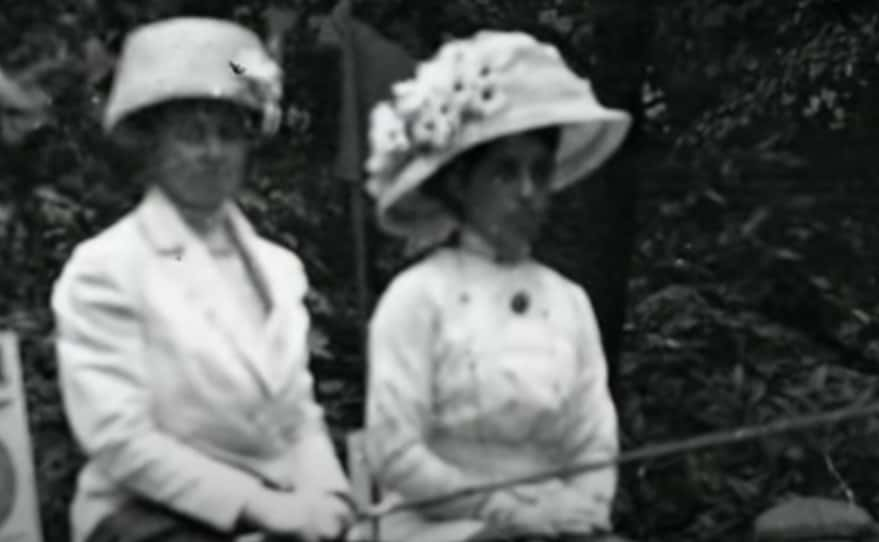 Sophia: Suffragette Princess, BBC
Sophia: Suffragette Princess, BBC
38. She Temporarily Changed Course
By 1914, Singh was donating approximately 10% of her annual revenue to the Suffragette cause. However, the onset of WWI led to a brief interruption in this work. With the world-wide conflict raging, Singh stepped into the fray yet again. She traded her furs for a Red Cross uniform and nursed the wounded Indian fighters at a British hospital. Whenever they realized that the famous Princess Sophia was the one assisting them, they forgot all about their injuries and asked to take a photo with the rockstar suffragette.
39. Her Efforts Paid Off
Singh and her fellow suffragettes finally achieved a huge victory in 1918 with the passing of the Representation of the People Act, but it still didn’t grant women total equality. The act only allowed women who were over 30 and who owned a home to vote. A second act followed a decade later granting voting rights to women 21 and over. Took long enough!
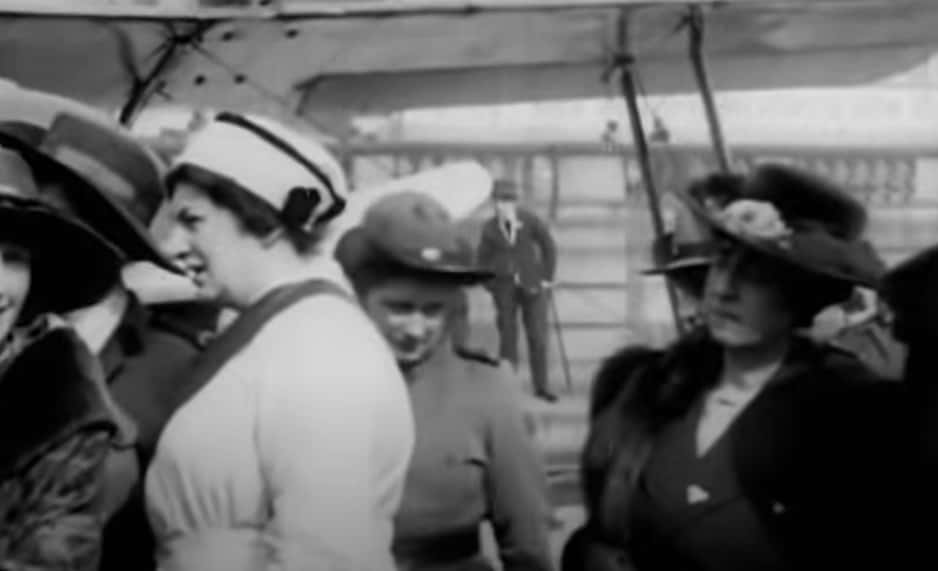 Sophia: Suffragette Princess, BBC
Sophia: Suffragette Princess, BBC
40. Her Sprits Sank
Towards the end of WWI, tragedy snowballed for the princess, causing her to sink into depression and, according to some, an eating disorder. In 1918, she learned that her brother Victor had suffered a fatal heart attack, she lost her cherished dog, she was experiencing financial troubles, and her sister Bamba married during that time, punctuating her loneliness. But just wait, things would get worse...
41. Her Family Had Issues
Remember how Sophia's dad left the family for his mistress? Well, Papa Singh had two daughters, Irene and Pauline, with his second wife. Despite some...awkwardness, Sophia always acted warm towards her half-sisters, making sure to write to them and stay in touch. However, all her friendliness would come to a horrific end.
42. She Lost Her Family
In 1926, mere months after her brother Frederick's demise, Sophia heard that her half-sister Irene had taken her own life by drowning. After a dramatic court battle over Irene's will, Pauline won the suit and immediately cut ties with her step-siblings. It was a terrible end to an already fraught family dynamic. By all accounts, the half-sisters never spoke again.
 Sophia: Suffragette Princess, BBC
Sophia: Suffragette Princess, BBC
43. Her Sister Was Scandalous
I'm not kidding about needing a glossy TV show about the Singh sisters. You've got Sophia the suffragist, Bamba the revolutionary, and Catherine the secret lesbian. Throughout Catherine's scandalous life, she and Sophia were very close, with their bond deepening in the 1940s. At this point, both sisters were single (Sophia never married and Catherine's great love Lina Shafer had passed in WW2), and would often attend plays together. On one of these occasions, however, their fun night had a tragic ending.
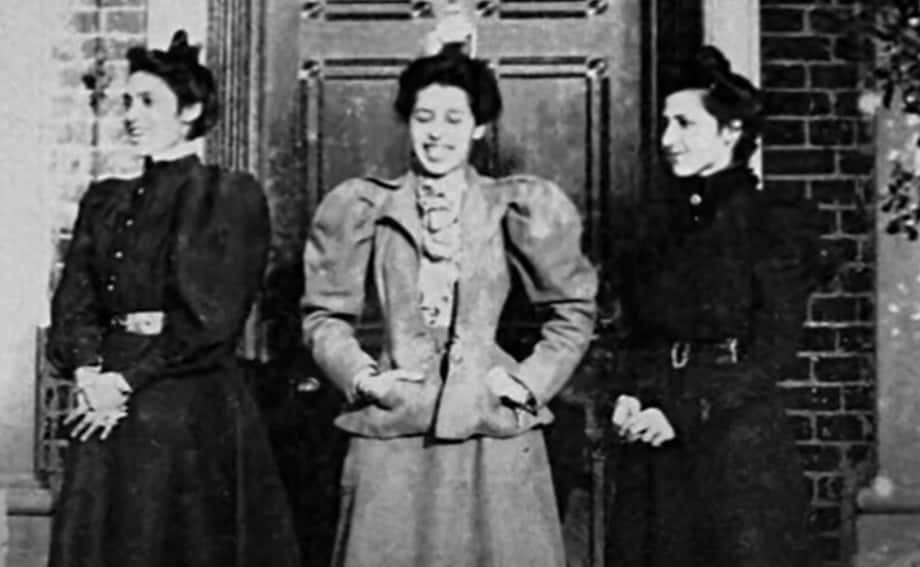 Sophia: Suffragette Princess, BBC
Sophia: Suffragette Princess, BBC
44. She Lost A Close Friend
On the morning of November 8, 1942, Catherine's maid discovered that the gentlewoman's bedroom door was locked. When the maid told Sophia that she couldn't contact her sister, Sophia leapt into action and broke the door down with her bare hands. Sadly, it was too late. Catherine had passed of heart failure. As a tribute to her sister, Sophia permanently closed the room where she had breathed her last.
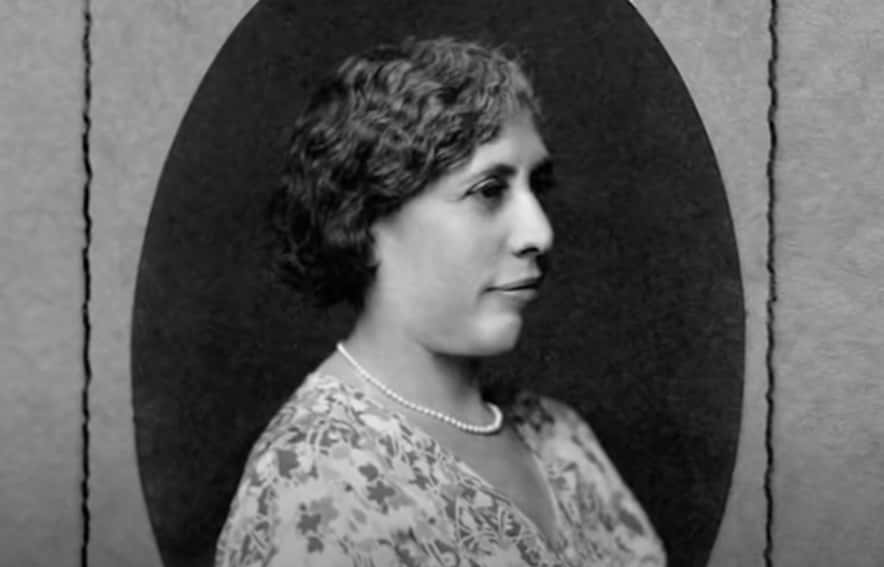 Sophia: Suffragette Princess, BBC
Sophia: Suffragette Princess, BBC
45. She Was Unsuccessful In Love
Despite her numerous accomplishments and social status, the one thing Singh never found was love. She had no trouble finding dance partners at social events, but a husband was another story. As she put it, no British man wanted "mongrel children," and she couldn’t relate to the hunky Sikh men that her sister Bamba tried to set her up with. In the end, Sophia never married.
 Sophia: Suffragette Princess, BBC
Sophia: Suffragette Princess, BBC
46. She Shared Her Treasure
Although she never had children of her own, in her 70s, Singh became godmother to her housekeeper’s daughter Drovna. Sophia absolutely adored the little girl and even gave her a beloved treasure. When Singh was little, Queen Victoria gave her a doll named Little Sophie. She passed the doll onto little Drovna, whom she also loved.
 Sophia: Suffragette Princess, BBC
Sophia: Suffragette Princess, BBC
47. She Asked for A Promise
Singh would often tell her goddaughter stories about the suffragettes, and one day, Singh extracted an important promise from the girl. She said: "You are never, ever not to vote … When you are allowed to vote you are never, ever to fail to do so". Singh’s plea obviously had an impact, because she’s kept her promise and never missed a vote.
 Sophia: Suffragette Princess, BBC
Sophia: Suffragette Princess, BBC
48. She Was Steadfast
Prior to her passing, the editors of Who’s Who, the biographical publication about influential people from around the world, asked Singh to contribute something for her entry. In the section marked ‘interests’ she wrote one simple sentence: "The Advancement of Women".
49. She Was Deleted from History
Singh was every bit as radical as her suffragette sisters, but she was all but ignored by history. According to her biographer Anita Anand, the British worked hard to keep her out of the headlines so she wouldn’t become a symbol of the suffragettes, and despite Mahatma Gandhi taking inspiration from Singh and the suffragettes for his movement, he too failed to mention her or what she did for India.
 Sophia: Suffragette Princess, BBC
Sophia: Suffragette Princess, BBC
50. She Continued Her Grandfather’s Legacy
Singh’s grandfather’s legacy was his unification of the Hindus, Muslims, and Sikhs in India, and in her own way, Singh did the same. Singh willed equal amounts of money to a Hindu, Muslim and Sikh school for girls in India, putting a final stamp on what she wished for in life—equality for all, and liberation for women in particular.
51. Her Final Wish Was Touching
At 71 years old, Singh passed on at home in her sleep in August 1948, but before that, she had some extremely specific requests regarding how she wanted her passing handled. She wanted to cremate her body in the Sikh tradition. She may have been born in Britain and raised Christian, but in the end, she wanted her ashes scattered in India, her ancestral homeland.
 Sophia: Suffragette Princess, BBC
Sophia: Suffragette Princess, BBC
Sources: 1, 2, 3, 4, 5, 6, 7, 8, 9, 10, 11, 12, 13, 14, 15, 16, 17, 18, 19


